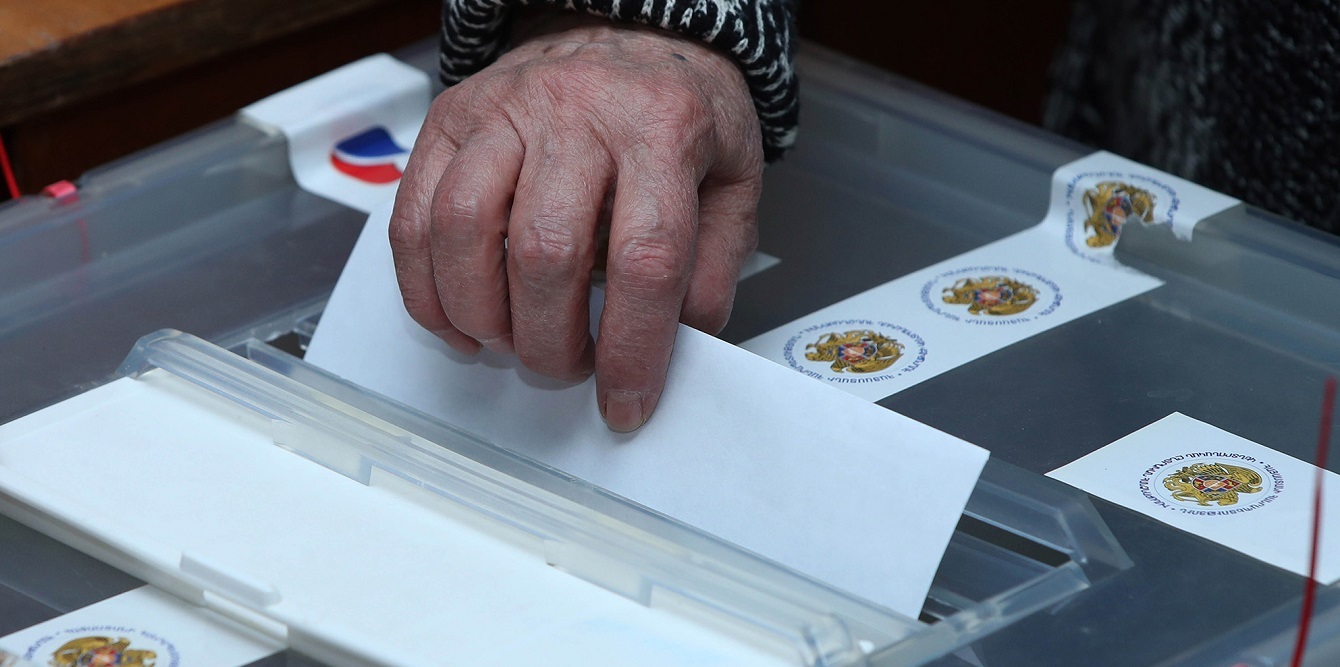What does the Vagharshapat election reveal?
17.11
2025
- The reason for the ruling party’s unconvincing victory is the underestimation of the opposition, running a campaign devoid of ideas, and relying on the already tiresome tactic of appealing to voters with outdated slogans.
- The current administration, with its abundant resources, achieved not an ideological, political, or strategic victory, but rather solved a tactical problem—preparing for the next parliamentary election. The Civil Contract party’s majority in the city council will soon face serious testing.
- Fake “superheroes” with their virtual political circus performances no longer contribute to a confident victory for the authorities. Anyway, the city of Etchmiadzin—known for “toppling Manvel”—is resisting the government’s hollow propaganda, anti-church stance, corrupt reputation, and ineffective governance.
- The authorities and their anti-Russian/anti-former authorities satellites, along with fake voter bases, are more present on social media algorithms than in people’s real lives. Not supporting the opposition in the streets does not mean losing the ability to sense the approaching national disaster. People may remain silent, but still refuse to vote for the government—despite the pressure.
- High voter turnout can change the course of events; Gyumri was a precedent.
- In Vagharshapat, the ruling party’s candidate won because the prime minister did not personally involve himself in the campaign, even though Nikol Pashinyan credits himself for the victory. This is an important signal for the opposition, which I am sure will soon be able to dismantle the ruling party’s sandcastle—or, I might add, the ruling candidate at the right moment could remember his family name and disrupt the Pashinyanist campaign against the Mother See of Holy Etchmiadzin (this is not wishful thinking but a rational political calculation, the time for which belongs to Argishti Mekhakyan).
The electoral success of the Civil Contract party in Vagharshapat is not due to the factor of the prime minister’s or the party’s national reputation but rather to the local reputation of the specific candidate. This is politically characterized as an example of candidate-centered politics. In this case, the main driving force is the personal vote, which depends on the candidate’s social ties, assumed community authority, the weight of a well-known family name, the services rendered, and the effectiveness in addressing local issues.
It can be noted that in Vagharshapat, voter behavior has clearly detached from the party’s national reputation. The empty propaganda of the Civil Contract party has reduced the influence of the party’s “revolutionary” brand to a historic minimum.
There is a gap between the Civil Contract’s party agenda and national electoral agenda. The campaign launched against the Mother See did not become a priority for public discourse, indicating cautious resistance from ordinary people/voters. In Gyumri, Vagharshapat, and other cities in Armenia, local elections do not reflect the central government’s rating. The Civil Contract party and its satellite forces shaped political competition not around programs, party ideology, or vision, but around counter-propaganda against individuals, personalities, and opposition. Some opposition candidates were able to capitalize on this, also leveraging the widespread anti-government sentiment in society.
This clearly indicates the deepening signs of institutional weakness within the Civil Contract party, which claims not to believe in “isms.” The party is unable to reproduce its authority and influence at the local level—at least in the cities.
Nikol Pashinyan has considerable experience and mastery in tarnishing the image of a national hero, and trampling authority, which is objectively applicable to any anti-state or anti-national actor. The problem is not Nikol himself but the willingness of these heroes’ relatives to, of their own volition, immerse themselves in Pashinyanism—a temporary impulse that I believe can be curbed.
I am sure that Argishti Mekhakyan fully understands that, just as the surrender of Artsakh was justified, Pashinyan will justify the crescent-moon campaign against the Armenian Church as done “with a mandate from the people,” and will drag the hero’s son into the operation of selling the homeland’s spiritual values.
There is no room for disappointment or despair—only persistent and consistent work. Bravo to the opposition for acting smartly. More must be done. Victories are forged by learning lessons from stumbles and failures. The ruling regime is ideologically bankrupt, easily breakable by nature, resource-rich but repressive. The will of the nation does not kneel before any machine of oppression. The Armenian people have the will to act, develop, and establish justice, along with wisdom, experience, potential, and mission.
The election in Vagharshapat is an episode in the lead-up to the next major electoral marathon, where I am convinced Armenians, with their votes, will say “no” to national humiliation, deception, corruption, and injustice, and say “yes” to a truly independent, secure, economically developing state with a national identity and dignity.





